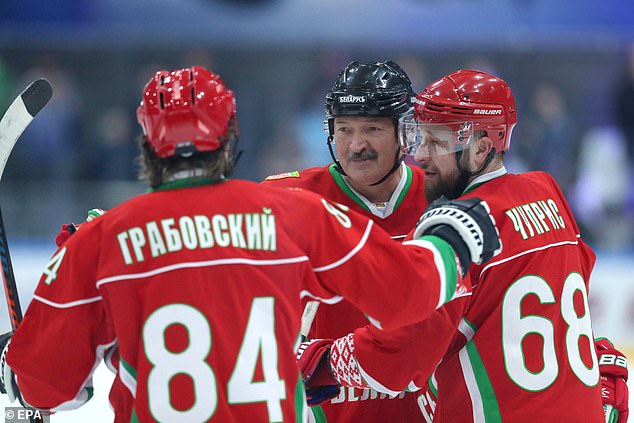
Belarus’s president, Alexander Lukashenko, has emerged as an unconventional figure in the global response to the COVID-19 pandemic. In contrast to many nations implementing strict lockdowns and social distancing measures, Lukashenko has resisted such actions, encouraging life to go on as normal in the Eastern European country of 9.5 million people.
His distinctive approach includes advocating for traditional remedies like vodka and saunas to combat the virus. In a televised speech, Lukashenko emphasized the importance of work, outdoor activities, and frequenting saunas to maintain health. He boldly stated, “There shouldn’t be any panic. You just have to work, especially now, in a village. Tractors will cure everyone. The field heals everyone.”
In a country where 154 COVID-19 cases have been confirmed, Lukashenko’s leadership has sparked both controversy and intrigue. Belarus does not provide regular daily updates on its cases, making it a subject of scrutiny and speculation. Despite global concerns, the president has actively participated in public events, including an ice hockey tournament, projecting an image of resilience and defiance against conventional pandemic containment measures.
Lukashenko’s dismissal of travel bans and border closures as ‘utter stupidity’ underscores his unconventional stance. He believes that such measures compromise individual freedom, proclaiming, ‘It’s better to die standing than to live on your knees.’ This sentiment aligns with his broader philosophy of resilience in the face of adversity.
An unexpected consequence of Belarus’s response has been the global spotlight on its soccer league. With foreign sports networks struggling to find content, the Belarusian soccer league has gained international attention. Lukashenko sees this as an opportunity to showcase the country’s soccer prowess and leverage the pandemic to put Belarusian teams on the global stage. Fans entering stadiums are provided with antiseptic hand gel, and some have their temperatures monitored, although masks are deemed unnecessary for open-air events.
The Belarusian soccer league, typically not an international attraction, has now become a focal point for sports enthusiasts worldwide. Russian TV broadcasts games on state sports channels, and betting firms in Western Europe stream them for customers. Fans on social media, especially in the UK, have embraced Belarusian teams, turning previously obscure players into heroes and passionately engaging in newfound fandom.
While Lukashenko’s unorthodox approach to the pandemic has garnered attention and criticism, the president remains steadfast in his belief that traditional practices and a resilient spirit will triumph over the virus. As the world grapples with varied strategies to combat COVID-19, Belarus stands out as a unique case challenging conventional wisdom in the pursuit of normalcy.
RELATED ARTICLES
- Brazil's Ministry Of Health Mandates Covid Jabs For Children As Young As 6 Months
- Italian Health Minister Faces Murder Charges Over COVID-19 Vaccine Deaths
- Australia says COVID-19 is back, Tells Citizens to Get more Vaccine Doses
- Pfizer Sues Poland For Bailing On COVID-19 Vaccine, Citing Shady EU Mega-Deal
- Romanian prosecutors seek to arrest ex-PM over conspiring with Pfizer and Moderna during COVID-19 pandemic












I have been to Belarus recently for business. I arrived in Minsk on 17 March and left on 20 March.
Those people goes on with their lives almost 100% normal. I say “almost”, because I think I saw about 1 person out of every 1000 wearing a mask. The day I left, there were people on the airport wearing masks – I would say about 1 out of 50.
Belorussians are highly civilized, Minsk is a very clean city and it is very affordable to go there for holiday.
It is the place to invest if you have funds to invest. Their currency is even more stable than the Russian ruble. It is a white man’s land ! I saw one black and he looked quite lost and confused. I still wonder what the hell he was doing there.